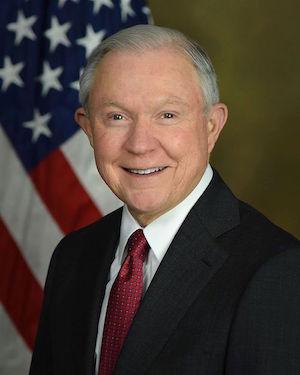Jeff Sessions: Minnesota Scam Deserves Your Attention

By Olivia Grady
On July 13, 2017, U.S. Attorney General Jeff Sessions announced that state officials had charged more than 400 people across the country with health care fraud and opioid scams as part of a Department of Justice and state effort to crack down on this type of theft.
The scams included doctors prescribing unnecessary opioids, rehab facilities recruiting “patients” with gift cards and visits to strip clubs in exchange for false treatments and tests, among others. These schemes defrauded $1.3 billion in Medicare, Medicaid and military health insurance funds.
One of these frauds was started by a Minnesota mother and daughter, who were able to defraud $1 million. They accomplished this by running a home health care agency called Your Way Home Care, Inc. Interestingly, the Minnesota Department of Human Services suspended file claims from this agency, but William Swanson, the father of Ms. Williams, acted as a “front” and another agency was later opened.
According to the Minnesota Attorney General, Lori Swanson, the women submitted claims for services they didn’t perform, used care providers’ IDs to submit false claims and paid family, friends and other clients to continue using the agency.
Swanson filed a 10-count criminal complaint against Juanita Swain and her daughter, Aretina Williams, along with eight other people in another fraud, including Ms. Swain’s cousin. These ten people stole approximately $8.6 million from the taxpayers who were trying to help those in need.
Swanson said at a news conference on July 13, 2017, “It’s an affront to the taxpayers who finance these programs with their generosity when criminals steal money from the programs and bilk the systems.”
Other fraud has been occurring as well because Minnesota Governor Mark Dayton (DFL) signed legislation into law in May 2013, declaring that home health care assistants, usually family members who help people with disabilities, were government employees. These personal care assistants, however, do not receive traditional government benefits. They are only government employees for collective bargaining purposes.
Since that time, the Service Employees International Union (SEIU) unionized the home care workers, and there have been more stories about fraud surrounding this program. As documented by Matt Patterson, executive director of the Center for Worker Freedom, the SEIU has been caught forging signatures of personal care assistants (PCAs) in order to automatically deduct dues from their paychecks.
The PCAs are fighting back though. They have created their own website, mnpca.org, and they are trying to hold another election on whether the PCAs should be in a union. These PCAs have unfortunately been stymied by the state, both government employees and politicians, but they are still fighting to save this wonderful program.
This program allows people with disabilities to live at home with a caretaker, rather than live in an institution. It is critical, therefore, that the PCAs continue to provide service. Unfortunately, the program is also susceptible to fraud, both from individuals and unions. The Center for Worker Freedom strongly recommends that Attorney General Sessions examine this program and prosecute all fraud.





